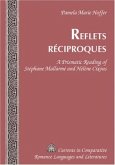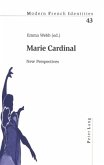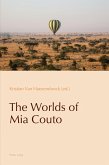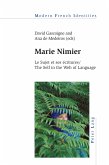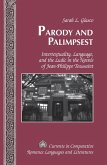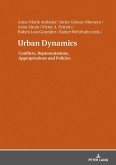This is the first book-length study devoted to the work of Marie Darrieussecq, one of France's leading contemporary writers, whose work has proved fascinating to both critics and readers for its diversity, the author's seeming ability to evade established literary categories and the changes in focus of her trajectory. This volume focuses on this ambivalence, highlighting the capacity of Darrieussecq's texts both to confront contemporary social issues, such as national identity and the role of women, and examine the complex relationship between language and reality. Focusing on the mid-section of her oeuvre (Bref séjour chez les vivants, Le Bébé and Le Pays), the author of this study brings together Darrieussecq's social realism, her emphasis on the productive and creative roles of language and narrative, and her interest in the role of social discourse in the formation of identity. The analysis in this book highlights the significant questions that Darrieussecq's texts raise about the ways in which we perceive and narrate the world and makes clear the original and essential nature of Darrieussecq's continuing literary project.


